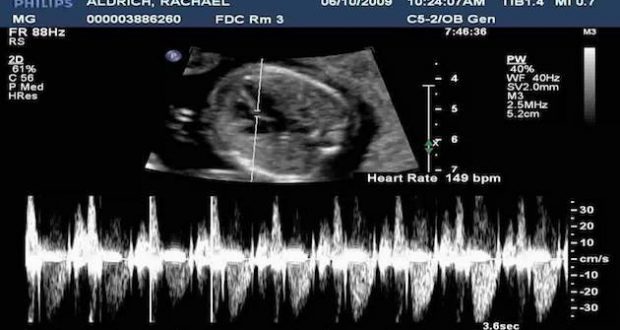The U.S. Supreme Court has rejected the abortion industry‘s attempts in finding a path to overturn a Texas abortion ban.
In a 6–3 ruling (pdf) fueled by Trump appointees, the court declined abortion providers’ request to move their lawsuit from the Texas Supreme Court and place it in the hands of a federal judge they hoped would overturn the ban. The law, known as the Texas Heartbeat Act or Senate Bill 8 (S.B. 8), prohibits abortions when an unborn baby’s heartbeat begins. Data released this week found it has saved as many as 10,000 unborn lives since it went into effect in September 2021. The law makes exceptions for medical emergencies.
The Supreme Court on Sept. 1 denied an effort to block the measure by a 5–4 ruling.
Whole Woman’s Health, which operates four Texas abortion facilities as well as others in five other states, had sued to overturn the law.
The abortion company argued the law violates the 1973 Roe v. Wade and the 1992 Planned Parenthood v. Casey decisions. Roe v. Wade prohibited states from banning abortions prior to when the fetus is deemed “viable”—deemed at around 24 weeks of pregnancy. Planned Parenthood v. Casey reaffirmed the Roe ruling and prohibited laws that place an “undue burden” on a woman’s ability to obtain an abortion.
SUPPORT: Donate now to help us report news others ignore
Whole Woman’s Health also challenged the unique enforcement mechanism of the Texas abortion ban. Under the measure, state officials have no role in enforcing it, but private citizens (except for an individual who impregnated a woman through incest or rape) can file lawsuits against anyone who allegedly “aids and abets” in an abortion that violates the law. The law was based on similar laws used in libeal states that targeted industrial polluters, thus putting liberal supporters in an awkward position of attacking a tactic they use themselves.
Because no state officials are involved in enforcing the law, abortion providers have found it difficult to bring legal challenges against particular individuals.
The Supreme Court heard oral arguments in the case on Nov. 1, 2021. The court refused to stay the law and threw out most of the arguments against the law, but allowed a narrow challenge to proceed, ruling that certain state licensing officials might have indirect authority to enforce S.B. 8, and so the lawsuit may only proceed against them.
Supreme Court Justice Neil Gorsuch on Dec. 16 sent the challenge back to the U.S. Court of Appeals for the 5th Circuit, which sent the case to the Texas Supreme Court on Monday, at the request of Texas officials. In a 2–1 vote, the 5th Circuit court panel asked the Texas Supreme Court to interpret S.B. 8 and determine whether state licensing officials are appropriate defendants under state law.
Earlier this week, the 5th Circuit moved the case to the Texas Supreme Court, where pro-life groups say it’s more likely to receive a favorable ruling upholding it long-term.
“The unresolved questions of state law must be certified to the Texas Supreme Court,” wrote Judge Edith Jones, an appointee of President Ronald Reagan, in an opinion joined by Judge Stuart Kyle Duncan, who was appointed by President Donald Trump.
“With no limit placed by the Supreme Court’s remand, this court may utilize the ordinary appellate tools at our disposal to address the case—consistent with the Court’s opinion,” Jones wrote.
The statewide pro-life group that has been fighting for the ban applauded the decision.
“On Monday, the U.S. Court of Appeals for the Fifth Circuit certified the Supreme Court of Texas to take over Whole Woman’s Health v. Jackson, the one remaining federal lawsuit challenging the Texas Heartbeat Act,” Texas Right to Life officials informed LifeNews.
“This is great news for Texas because such action is more likely to ensure a just and favorable ruling, compared to that which could be expected from a pro-abortion federal district judge, to whom the abortion industry asked to send the case. Beyond this, sending the lawsuit to the Supreme Court of Texas is appropriate because the only defendants left in the case are state agencies,” the pro-life group added. “Most exciting of all is that the Texas Heartbeat Act has withstood another court decision and is continuing to save an estimated 100 preborn lives every day!”
“Instead of stopping a Fifth Circuit panel from indulging Texas’ newest delay tactics, the Court allows the State yet again to extend the deprivation of the federal constitutional rights of its citizens through procedural manipulation,” Sotomayor wrote in her dissent.
–Dwight Widaman and Lee Hartman | Metro Voice
 Metro Voice News Celebrating Faith, Family & Community
Metro Voice News Celebrating Faith, Family & Community 








